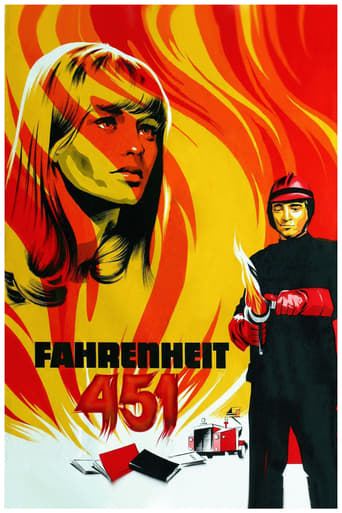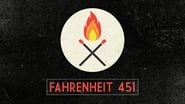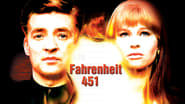fu-avci
Fahrenheit 451 is originally a novel written by Ray Bradbury. Ray Bradbury was an American author and he lived between 1920 and 2012. He wrote approximately five hundred works such as novels, stories or poetry.I want to say something briefly about the subject of the movie and the book which related it and then I will talk about some notions about the movie.The movie, Fahrenheit 451 is about a dystopian future world. Reading activity is prohibited by the government and most of books are destroyed by their officers (firemen). Those who insist on keeping or reading books are punished. There is a strong fireman image in the story. A fireman is a destroyer and an oppression and fear elements on public. He is a preventer, and story is telling a fireman's transformation from preventer to prevented.Okay, what can be reason of prohibiting books?It is easy to guess. Reading activity is a key to open new horizons for society, people can reach and exceed their limits with learning new things and reading is one the most effective learning ways. The government in the story doesn't want citizens who thinking, judging or criticizing. They want to create completely obeying society and preventing books is the most important method according to them. Actually, it looks to me very similar. There is a similar system in today's world. States trying to makes us less educated, less advanced cause they need us as numbed or confirming, supporting their all ideas and applications.So, today's world may be some kind of dystopian world as much as well.
morrison-dylan-fan
Gathering up works by auteur François Truffaut from the 60's,I started trying to decide what the final title in the 4 film viewing would be. Finding out that (the superb) The Wild Child was not a 1969 film (as the DVD case claimed) I began struggling to come up with an alt choice. Recently picking it up on DVD for a friend,I was surprised to see on his IMDb page that this was Truffaut's lone Hollywood movie,which led to me turning the page.View on the film:Stating that he would have quit the movie if he had not been making it, (and spending all the time off-set in his hotel room,due to only being able to speak broken English!)co-writer/(with Jean-Louis Richard/David Rudkin and Helen Scott) director François Truffaut impressively overcomes the language barrier to bring his unique stylisation to Hollywood, bound by Truffaut & cinematographer Nicolas Roeg following Montag in extended French New Wave "walk & talk" tracking shots. Using colour for the first time, Truffaut sets the screen alight with kitsch burning reds, (backed by the flames of Bernard Herrmann's excellent score)which gives the grip of fascism an unsettling blending in with the "perfect" looking town,filled with flat screen TVs and interactive programs to keep the public distracted from the dissolving images of burning books.Firmly holding the view in his youth that screen adaptations were a major problem of French cinema, (or as he called it "Cinema de Papa")and that Sci-Fi movies are "Uninteresting and arbitrary" the six years Truffaut spent trying to bring Ray Bradbury's book to the screen led to themes in films made during this phase entering the movie. Openly saying during the haunting ending that the readers are rebels,the writers make Montag(played by a constantly unsettled,and visibly stiff Oskar Werner) fight against the eerily normalised/mundane image of black shirt-wearing Fascists one charged by his hidden collection of books undermining those in authority,and Montag's desire to keep his affair secret coming from Truffaut tearing up the cosy middle class marriage image in The Soft Skin,as Montag battles to keep books from burning at Fahrenheit 451.
elvircorhodzic
FAHRENHEIT 451 is a Dystopian science fiction drama film which takes place in a controlled society, in an indefinite future, where books and written texts are prohibited, while, individual thought has become a question of consciousness. The books have become public enemy number 1. The story has a demonstrative character, regardless of the lack of strong emotions. This idea is not well treated, because it comes down, in a rougher sense, on a fight between the books and the media. A kind of revolution is a excessive background of the story. It is based on the 1953 novel of the same name by Ray Bradbury.In the future, an oppressive government maintains control of public opinion by outlawing literature and maintaining a group of enforcers known as "firemen" to perform the necessary book burnings. One of the firemen, Montag, meets one of his neighbors, Clarisse, a schoolteacher who may be fired due to her unorthodox views. The two have a short discussion about his job. Montag begins to question the morality of his vocation. Curious about the world of books, he soon falls in love with a beautiful young member of a pro-literature underground - and with literature itself...Mr. Truffaut has edited the contrasts with a large dose of the enthusiasm. People are going to save the world, but only if they become books. The books will save the world, as soon as they become people. A world that rejects literature fits in a sad and depressing atmosphere. The direction is unclear and undefined. The characterization had to be better.Oskar Werner ( Guy Montag), Julie Christie ( Linda Montag/Clarisse) and Cyril Cusack (Captain) are carefree and pompous characters at the same time. A book brings unrest in their characters, which manifests itself through desire, fear, anger, pain and a kind of love in the end.Watching this movie, I have an impression that I was on a promising party, which has eventually become uncomfortable and depressing.
adkturn
Seen this film countless times over the years, including in theaters the year of its release. Yet it continues to retain its grandeur and eloquent anti-establishment theme, at the same time (perhaps ironically) instilling in viewers a love of books and reading.Many people grow up and old believing when they complete their last year of formal schooling, be it high school, college or grad school, that their education is "complete" and they know everything they need, to get along in the world when in fact graduation is just the start of one's education, and a large part of that lifelong continuous process involves books! About the film itself, there's so much to enjoy: Truffaut's incisive direction; Nicholas Roeg's stark cinematography; Bernard Herrmann's gripping score; Julie Christie's radiant dual roles as Linda & Charisse; Cyril Cusack's fatherly but soulless fire chief; and -- holding it all together with a riveting focus -- Oskar Werner as the robotic "fireman" who eventually rediscovers his humanity and sacrifices everything to keep it.It's astonishing to look at Fahrenheit 451 from the vantage of the 21st century and marvel at the incredible concentration of A-list (for its time) talent assembled in one place for what would amount to pocket change in today's dollars. And out of that modest sum, Truffaut & company crafted an enduring film when more recent "blockbusters" made for 100 times the cost don't survive in our memory past the opening weekend.There's a minimalism to the sets that contemporary film goers, raised in the age of HD, might find lacking but it is more than compensated for by the universality of its message.







